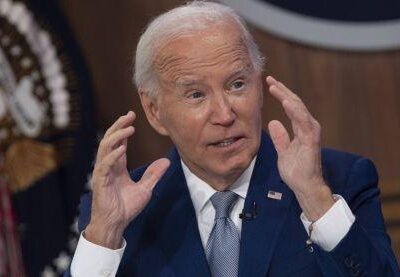
(Ecofin Agency) – For Nigeria, this bond issuance offers a ray of hope amid economic challenges. The short-term success brings some relief, but questions remain about how the country will handle the risks of taking on foreign currency debt in a volatile environment.
Nigeria recently achieved a milestone with its first-ever domestic dollar bond, which was oversubscribed by 180%. Initially aiming to raise $500 million, the government finally secured $900 million in commitments. This result surprised many, given Nigeria’s fragile economic situation, marked by rising inflation and the continued weakening of the naira.
Wale Edun (pictured), Nigeria’s Minister of Finance and Economy, described the bond as a landmark for the country’s domestic market. The official said this success demonstrates investors’ confidence in the country’s ability to turn the economy around. However, there are significant risks associated with this achievement that should not be overlooked.
As West Africa’s largest economy, Nigeria chose to issue a domestic bond in U.S. dollars rather than the local naira, reflecting the country’s economic difficulties. Nigeria has been grappling with a chronic shortage of foreign exchange, worsened by the ongoing depreciation of its currency. By opting for a dollar bond, the government hoped to attract investors seeking more stability, especially as the naira continues to lose value.
The bond, with a 9.75% coupon paid semi-annually over five years (an effective rate of 9.99%), is aimed at financing strategic projects in key sectors such as energy and infrastructure. The bond is part of a broader $2 billion program registered with Nigeria’s Securities and Exchange Commission. According to the terms of the issuance, the government has the option to absorb additional subscriptions up to the program’s full $2 billion limit.
The 180% oversubscription was celebrated as a major victory, drawing interest from Nigerian investors, the diaspora, and international institutions. However, the strategy has sparked some concerns. The International Monetary Fund (IMF) had previously expressed reservations about Nigeria issuing foreign currency bonds domestically. The IMF warned that this could add more pressure on the naira, which is already under significant strain, and increase the overall cost of debt for the country.
The IMF pointed out that by issuing dollar-denominated bonds, Nigeria is exposing itself to exchange rate risks. If the naira continues to weaken, repaying the debt could become costly for the government, which earns most of its revenue in naira. Another concern is that Nigeria might have to dip into its foreign reserves to make the bond payments, further weakening its monetary position. The IMF also raised the possibility of market fragmentation. Issuing foreign currency debt domestically could worsen economic imbalances if it’s not managed carefully, the IMF warned.
Patience Oniha, Director-General of Nigeria’s Debt Management Office (DMO), addressed these concerns, calling the bond issuance a “pivotal moment” for the Nigerian financial market. She said the success of this bond could open the door for more domestic dollar-denominated bonds in the future, helping Nigeria diversify its funding sources. She said this transaction proves that Nigeria’s domestic market is strong enough to handle foreign currency issues while also boosting investor confidence.
Despite the risks, investors eagerly bought into the dollar bond. The 9.75% yield, though lower than the 19.5% offered by five-year naira bonds, attracted those seeking safer investments. With inflation nearing 25% and monetary instability, many investors preferred the dollar bond as a hedge against the naira’s depreciation, which is making local bonds increasingly risky.
For international investors, the bond offered an opportunity to secure high returns in a market where interest rates are relatively low in developed economies. The bond struck a balance between the yields offered by Nigerian eurobonds—typically ranging from 9% to 10%—and limited exposure to Nigeria’s currency volatility. For example, Nigeria’s eurobonds maturing in 2029 offer a yield of 9.365%, while those maturing in 2049 yield up to 10.552%.
This domestic dollar bond has, for now, delivered a much-needed win for Nigeria, but the long-term economic implications remain uncertain.











Comments